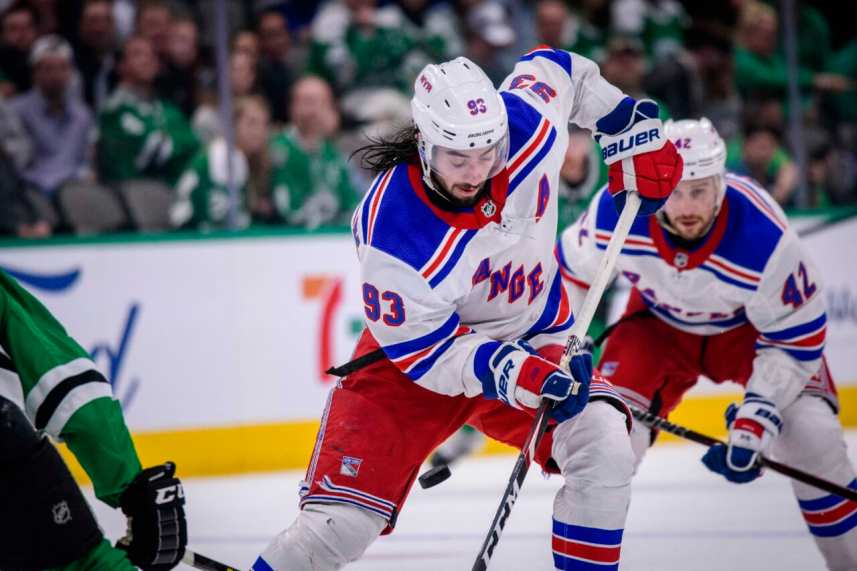
Much has and will be written and said about how the lack of playoff experience for the New York Rangers will be a hindrance for them when they start to play on Aug 1. While not exactly “fake news” it is something that makes for good copy to fill pages and the airwaves. The reality is, their experience is less of a factor in this type of playoff.
A unique experience for the New York Rangers and everyone else in the playoffs
Ask yourself, “when is the last time the NHL conducted a playoff after a four-month break, played at a neutral site, without fans, living in a bubble and having blood tests and/or nasal swabs stuck up their noses on a frequent basis?
The correct answer is: Never
So when you see things like “fourteen of the players on the roster, and not including the entire taxi squad, have played zero Stanley Cup playoff games”, and “Coach Quinn has never coached a playoff game”, it sounds like good analysis, but this year, it has a lot less meaning than in previous years.
In reality, if they think about it, most of the players are probably used to playing big, stand-alone tournaments, even in the summer.
For those who have not experienced youth hockey or any other youth sports, top-level hockey players will frequently play some tournaments in the summer. After their travel season is over, most teams will take a break so that their players have a chance to pick up a baseball bat or lacrosse stick. Then at times, teams will get together and play some big tournaments, usually in Canada.
Boys of summer. pic.twitter.com/iOpSsj1ULu
— x – New York Rangers (@NYRangers) July 19, 2020
Good teams come from far and wide to play in these tournaments. It was not unusual to see the Florida Junior Panthers or the Washington Little Caps play in them.
The nice thing about the summer tournaments is that the parents usually get to see more of the sights of the places they are visiting, something that playing in the harsh northern winters doesn’t usually allow for. Plus you can run into some people you would not normally see, like when we ran into former Chicago Blackhawk and Detroit Red Wing Chris Chelios, who was coaching his son’s summer team.
Hopefully, the bubble will allow the players some of this experience, like playing at some of the Toronto areas fine golf courses, something that would not be able to do in February.
These tournaments usually start around Thursday and Friday and usually guarantee a team will get to play three or four games. So like these Stanley playoffs, one loss won’t hurt too much, two losses are tough, but three losses mean that you are thinking about what to get at the duty-free shop before you cross back over the border.
Even if they didn’t play in the summer, most of these players have competed in large tournaments before, whether it was in international competition, or the Syracuse Youth Hockey Thanksgiving Spectacular.
That is really what this year’s Stanley Cup tournament is like.
The biggest issue for the youth of the Blueshirts is the maturity level of the players, and how they can handle how the issues of today. It is a lot for an 18 or 19-year-old to deal with the fact that there is a virus out there that could potentially cause them a great deal of harm. That is more of a factor than “playoff experience”.
"I think the best learning tool is to experience it. I think those lessons that we're going to learn are going to be invaluable, but this isn’t about creating experience for us down the line – this is about us winning hockey games." – Coach Quinn pic.twitter.com/XJII8O5q44
— x – New York Rangers (@NYRangers) July 22, 2020
It is also going to be more of a testament of how Quinn and other coaching staffs handle their players, who probably did not skate much while being quarantined during the pandemic.
After all, this season of hockey is most likely destined for a Twilight Zone episode versus being added to “Great Stanley Cup Moments.”